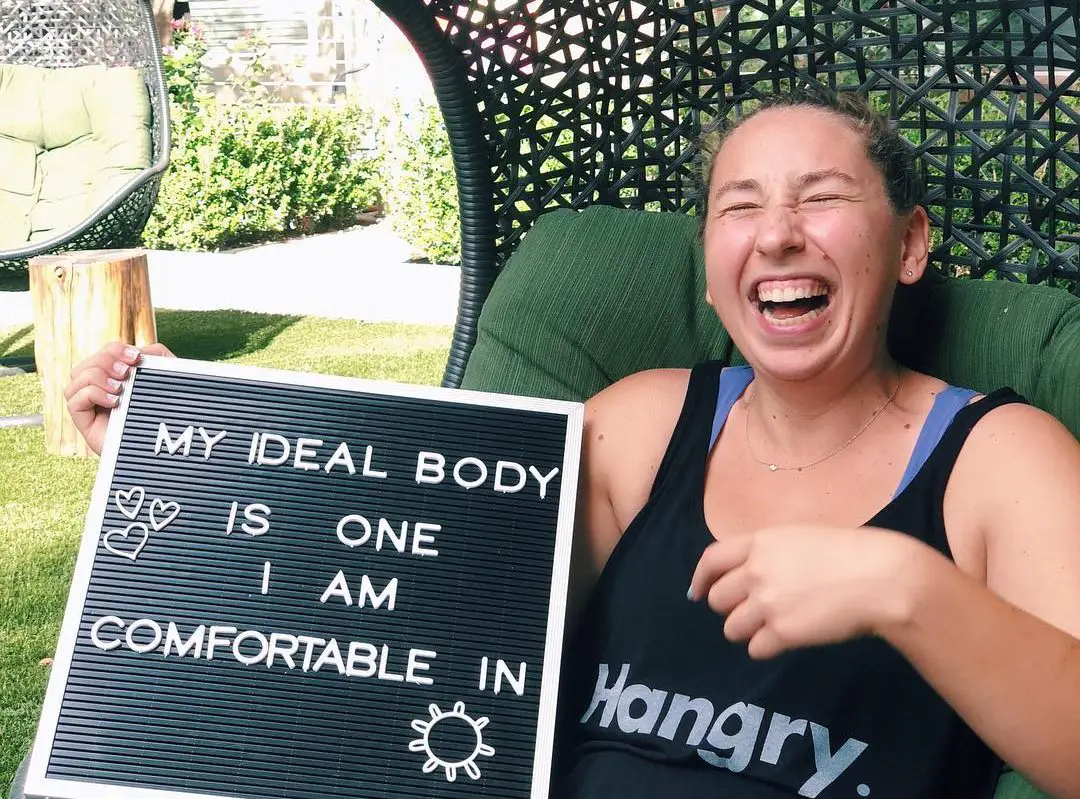Many people have tried some type of diet at least once, whether it be cutting out carbs or going on the South Beach diet — intuitive eating, however, offers an alternative that gives you a much healthier relationship with food.
The problem with dieting is that it almost never works long term, because restricting yourself and looking at certain foods as “bad” or “good” doesn’t foster a positive view on food or your body.
Since a lot of diets rely on the person feeling like a failure if they eat anything considered unhealthy, intuitive eating seeks to change diet culture. Intuitive eating was created in 1995 by two registered dietitians, Evelyn Tribole and Elyse Resch. It’s a non-diet approach to eating where you don’t count calories or macros, but instead rely on your body to tell you what and how much to eat with no guilt involved.
One of the most prominent platforms where fad diets and body negativity arise is Instagram. There are many accounts that promote dieting, feeling guilt over eating and obsessing about body image to an unhealthy degree. I’ve found some Instagram accounts that counteract diet culture and the obsession with a perfect body. They promote intuitive eating and body positivity by making inspirational posts and giving advice.
@mollybcounseling
Molly Bahr is a licensed mental health counselor with 40,000 followers on Instagram, and she promotes intuitive eating as well as health for every size. Her posts consist of pictures of different foods and a variety of quotes where she discusses how intuitive eating is better than dieting and how important it is to have a healthy relationship with food.
On one of her recent posts, Bahr put up a picture of a Cuban sandwich and wrote: “Intuitive Eating is a mind-body approach where we respect, honor and reconnect with our body and its wisdom rather than ignore it and rely on an outside source telling us when, what and how much to eat. It’s a great option for people who want to make peace with food and their body.”
https://www.instagram.com/p/B1XH7Q6hvq1/
@mollybcounseling is a great Instagram account to follow for everyday inspirational messages about body positivity and detailed explanations of how intuitive eating works. She captions her photos with important information and questions for her readers to reflect on, like how our view of food affects our lives. Bahr’s account is a helpful resource for anyone looking to learn more about intuitive eating and how to follow it.
@kristamurias
Krista Murias is a certified intuitive eating coach that uses her Instagram to educate people about how harmful diet culture is and how intuitive eating can help. One of her recent posts is a quote that says, “I’m willing to take care of my body by listening to its cues, nourishing it well and moving in ways I enjoy. I’m no longer willing to punish my body or try to force it to be smaller through restriction and deprivation.”
https://www.instagram.com/p/B1O-sMPlq2f/
The @kristamurias account encourages its followers to think about how many diets they’ve been on, noting that if diets really worked, then they wouldn’t need to try so many. Murias spreads body positivity by saying that not all thin people are healthy, despite what society would have you believe, and you don’t need to be small to be worthy and healthy. Her message is that guilt should never be associated with food and no food makes you good or bad, nor should you be put down or praised for what you eat.
@alissarumseyrd
Alissa Rumsey is a non-diet dietician and intuitive eating counselor who does virtual coaching and online courses. Her Instagram account is more directed toward women, but men could follow it as well for messages about body positivity and intuitive eating. She talks a lot about body positivity and how stretch marks, cellulite, skin discoloration, etc. are all normal, natural parts of the body.
In one of Rumsey’s recent posts, she explains that “your size and your weight do not determine your value in the world.” She says women especially receive more compliments on how they look than their accomplishments, talents, personality or character.
https://www.instagram.com/p/Bwsc1VzAkU_/
She wishes to emphasize it’s not our looks that determine our value; we are more than a body. Diet culture puts size and weight as the most important aspect of a person, but Alissa shows with intuitive eating that you can take the focus off your body and stop obsessing about food.
@alissarumseyrd talks about the “food police,” a subject the other accounts I’ve mentioned have also discussed. People who have gone on diets or have restricted their eating to lose weight often have a voice that acts as a food police. It tells them they’re good or bad based on what foods they eat.
If someone with the food police voice eats pizza for example, they’ll immediately think they need to restrict for the rest of the week or work out excessively to make up for eating something “bad.” Rumsey explains we need to tune out the food police that society instills in us and instead listen to the cues of our body.
https://www.instagram.com/p/Bt8cgUxAg-V/
@drclaudiatfelty
Dr. Claudia T. Felty is a registered dietician and nutrition educator who uses her platform to inform people about intuitive eating, especially the myths verses the truths.
A lot of Dr. Felty’s posts are comparisons like myth vs. truth or silly vs. smart. One of her recent posts is a comparison where she says “Silly: Avoiding your favorite chocolate because carbs, calories, etc. Smart: Knowing you can have any food, any time, without guilt or shame.” She explains it’s completely normal to crave “unhealthy” foods after restricting yourself on a diet and that you shouldn’t fight those cravings. They’ll subside over time as you focus what your body needs.
https://www.instagram.com/p/ByYFk3dFuXv/
Another one of Dr. Felty’s posts states “Myth: Intuitive Eating= no more alcohol. Truth: Intuitive Eating= balance with alcohol.” The most important aspect of intuitive eating is taking away the stress and obsession over what you put into your body. However, not focusing on what and how much you consume doesn’t mean you eat unhealthily all the time or drink too much.
https://www.instagram.com/p/B0bd1t7FwvW/
Instead, intuitive eating means that you can consume whatever you want without feeling guilty, which then then leads to you wanting to fuel yourself with healthy food, while not feeling like you have to restrict fun food or drinks either.
Dr. Felty discusses how she used to be terrified of going out to eat with her friends, only ordering water because she didn’t want to eat foods that she didn’t know the ingredients or calories for. She clarifies how unhealthy that mindset is and how everyone deserves to go out to eat whenever they want and order whatever they want. She suggests, “order, eat and move on with your day.”
@gofeedyourself_
Lauren Newman is a registered dietician and eating disorder and diabetes expert who uses her Instagram to educate people on intuitive eating, especially relating to eating disorders.
In one of her recent posts, Newman says, “Eating ‘healthy’ at the expense of feeling stressed about all your food choices and/or having food take up a significant amount of space in your brain isn’t actually healthy.” She explains that you’re not being healthy if a decision between pizza and a salad causes you an extreme amount of stress. There’s a time and place to eat both.
https://www.instagram.com/p/BvMVuSCFcfK/
Newman also talks about the types of people we surround ourselves with, and whether they’re supportive of healthy relationships with food. She asks, “What are meals like with your friends? Do you notice the conversation shifting towards good and bad foods? Guilt and shame around eating or movement?”
While it’s important to reflect on yourself and your view of your body and food, it’s also important to evaluate how you’re influenced by others in your life. People who diet, restrict or are obsessed with food do not comprise a healthy mindset to be around.
All these Instagram accounts are helpful ones to follow if you struggle at all with body image or dieting. Even if you don’t, the messages each account promotes are ones we should all acknowledge and follow in our daily lives. If you’re struggling in any way with eating and your body, you should see a professional, but following these accounts is a good start to understanding how intuitive eating works and why it’s so much healthier than diet culture.
















